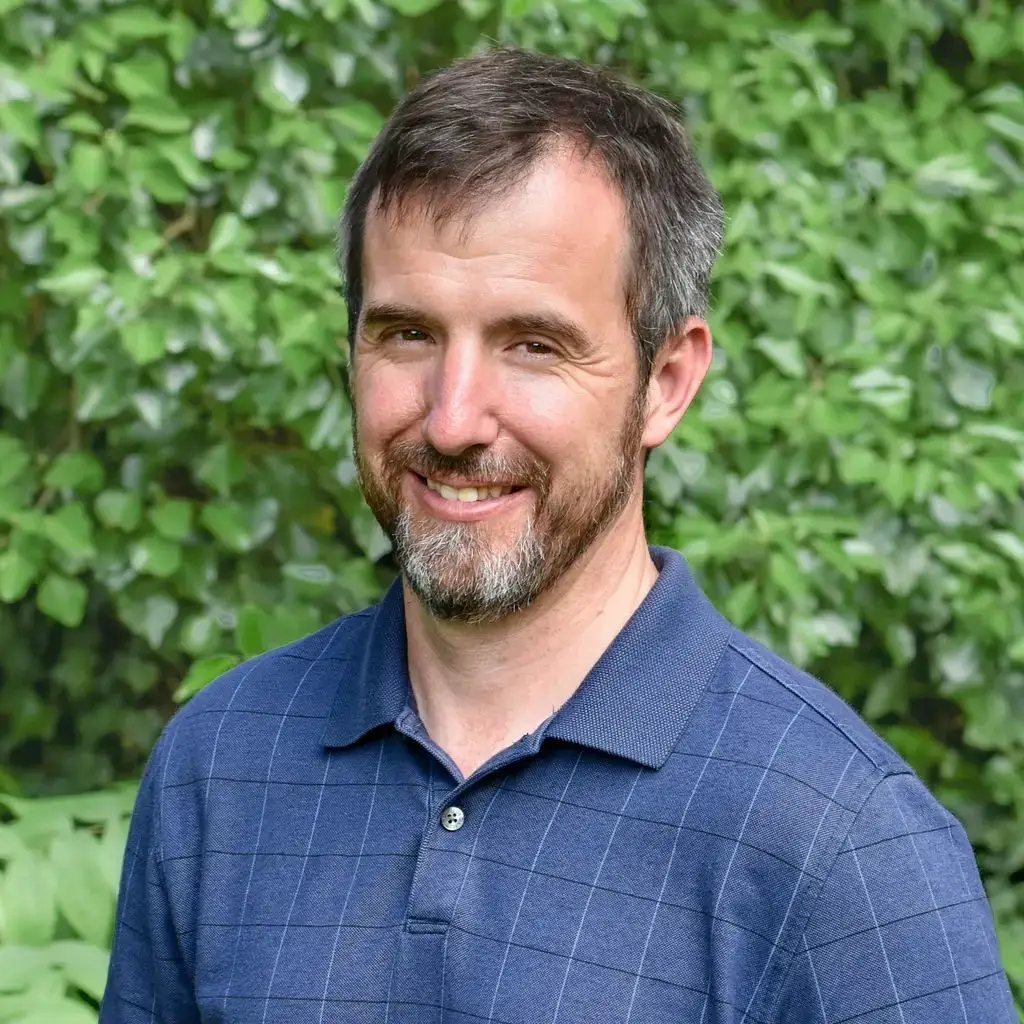How to A.D.U.L.T: Live

Prefer audio? Click here to listen!
This article was originally published on Medium.
Unbound uses an educational framework called ADULT: Ask, Do, Understand, Live, and Thrive. In the first three posts of this series I talked about Ask, Do, and Understand.
Ask means understanding the reality that the knowledge we need to be successful in our world has fundamentally changed. Instead of knowing lots of answers, we need to know how to ask good questions. In a dynamic, rapidly changing world, the critical academic skill is the ability to learn. It’s the ability to quickly and effectively master complicated information.
Do is the acknowledgment that we live in a world where business and the way work gets done has fundamentally changed. Action now drives theory. Instead of deep planning, iterative decision-making is how we make progress. In this post I argued that project-based education is a better way to prepare young people for most kinds of work.
Understand is about connecting ideas to action. Your life is a story and should be taken page by page and chapter by chapter. Understanding foundational ideas about personal skill and the ways that teams function enables you to take immediate action on the opportunities in front of you right now. It enables you to use those opportunities as natural steps into your future.
The future of education in your inbox.
Get productivity tips, commentary, and Unbound updates sent to you!
In the ADULT framework, Ask is the underlying framework of ideas. Do is the action-based component of the framework, and Understand is the hinge that connects ideas and actions to outcomes. The critical question should be, “What outcomes?” In this post we will discuss what it means to Live. What does it take to live well?
Caution! Blunt Truth Incoming
Every person, in every time and place, faces challenges and struggles. It is the nature of being human and the nature of reality. Some struggles have been far more difficult than what we face today. I am glad that I don’t live in the time of the Black Death. I think it is reasonable to conclude that whatever challenges I am facing today pale in comparison to those faced during the Great Depression or World War II.
Consequently, we should not be surprised that we face cultural and societal challenges, nor should we be hysterical and fail to place our challenges in proper context. We do indeed face challenges. To live well means to identify, understand, and squarely face those challenges.
It is tempting to assume that our primary challenges will be found easily in the headlines. We could look at what is happening in politics, what the media is deeming a crisis, and what the latest shocking news story proclaims, and we could see that as our current struggle. But to do so would be to react to the symptom and not to the cause. If we really want to understand the struggles that challenge our generation, we must look deeper and think broader.
I think Jonathan Haidt and Greg Lukianoff did an excellent job digging deeper in their book, The Coddling of the American Mind. The broad patterns they identify are not an exhaustive list of all of the generational challenges we face today, but I think they correctly identify foundational problems that all of us, and particularly young people, need to identify, understand, and confront.
Following is my interpretation and paraphrasing of Haidt and Lukianoff’s arguments.
Celebration of Weakness
In the West, our current culture celebrates weakness and rejects strength.
In the past, there was a consensus that struggle strengthened groups and individuals. Facing hardship and challenges could be unpleasant, but doing so developed strength, and strength was to be desired — strength of mind, strength of character, strength of beliefs, strength of community, and strength of body. Struggle was considered normal and experiencing discomfort was an unremarkable fact of reality.
Today comfort is prized above all else, struggle is to be avoided, and discomfort is considered tragic and abnormal. A successful person should not have to deal with struggle and discomfort. Rather than seeing stress as something that tests and strengthens, today we see stress as something that does cumulative and irreparable damage.
Haidt and Lukianoff summarize the cultural reality as, “What doesn’t kill you makes you weaker.” Therefore, in order to live well, modern people demand safety as the highest ideal, protection from emotional damage to be required by law, and comfort at all times and in all cases to be the goal. This celebration of weakness and rejection of strength is so interwoven into the culture that is barely even noticed.
Enslavement to Feelings and Emotions
A celebration of weakness and rejection of strength naturally leads to enslavement to emotions and feelings. It requires struggle to choose against physical desires and instincts. This struggle was once considered virtuous. It is now considered naive and dangerous. It is unremarkable and even normative to make the claim that what you feel is reality, and that you can define your own reality by your feelings. In our very recent past, this idea would have been so preposterous that anyone who made such a claim would have been considered mentally ill.
Instead, in today’s world, anyone who claims that feelings are not reality is considered to be a dangerous menace to society who should be silenced and shunned.
Battle Lines
In fact, silencing and shunning those you don’t agree with is the third major cultural challenge we face. A celebration of weakness and rejection of strength leads naturally to claiming that what you feel is reality. Celebrating strength and defining reality apart from feelings, then, becomes a direct personal attack. Such attacks must be guarded against, since dealing with an attack is uncomfortable and ultimately irreparably damaging.
All of this leads to a desire to define enemies and oppose them. If your feelings are sacred and safety is essential, it is natural to define anyone who disagrees as an enemy. That must mean that one of the most important goals in life is to identify the “good guys” and join them. You then prove your allegiance (and virtue) by enthusiastically opposing the “bad guys.”
Reality Check
In short, we are part of a generation that celebrates weakness and opposes strength, believes that we are enslaved to our feelings and emotions, and constantly draws battle lines to stay on “the right side of history.” Headlines and cultural problems are the symptoms of these underlying diseases.
To live well means, in part, to understand these foundational problems and reject them. Why is that required to live well? Simply put, living well means acknowledging reality.
Anyone who objectively studies human history and studies the natural world will observe unmistakable patterns that reject our current culture’s bad ideas.
Strength is good, and struggle is necessary to build strength. If you open the egg and help the chick hatch, you doom the chick. A young tree protected from high winds will fail to put down sufficient roots and will topple when exposed to storms later on. Reality will always require strength. Struggle in this world is wholly unavoidable. Full time comfort and safety is a fantasy that will always be destroyed. Those who fail to acknowledge these truths will be destroyed by them.
Reality exists apart from what you feel. No matter how passionately you feel differently, this statement is still true. You can believe and feel as deeply as it is possible for a human to believe and feel that the earth is flat, but the reality is that if you continue to travel due west around the equator, you will eventually return to where you started. You can believe and feel as deeply as possible that the beach towel around your shoulder will allow you to fly like a superhero, but the hospital or funeral home will be your actual destination when you leap off the high building.
Nobody, including you, is perfect. Aleksandr Solzhenitsyn observed, “The line separating good and evil passes not through states, nor between classes, nor between political parties either — but right through every human heart — and through all human hearts.”
At Unbound we constantly remind our students that in this world, we do not have the luxury of fighting orcs. In fantasy worlds like Middle Earth, heroes fight irredeemably evil beings. Such worlds are popular because of their clarity. At some level all of us long for that moral certainty to destroy evil. Evil is a reality in our world, but orcs are not. Every person is capable of evil. No person is beyond redemption.
Living well requires resilience. It requires the ability to struggle and build strength, to accept and deal with reality, to acknowledge and account for the evil in your own heart, and to believe that no person, including yourself, is beyond redemption.
Reality and Purpose
The first step towards living well is understanding reality. The second is having a purpose.
Part of the reality of being human is that all people, at some level, want to change the world. We want to know that our lives matter, that we have a purpose, that we are here for a reason, that we can make a difference.
In the past, most people understood their lives to matter in the context of their local community. Changing the world was measured by observing the impact, for good or for bad, that you had on your neighbors and family. You knew your life mattered because you were surrounded by people who had known you and loved you since you were born. Your purpose was to find a place where you could best serve your community.
That is not to claim that the past was a perfect Mayberry. Families can be abusive, communities can bully and persecute others, and loving each other is not the human default. If there was an advantage to the past, it lies in the fact that local communities, for good or ill, often provided more immediate feedback on the purpose and impact of a person’s life.
Today, we have larger aspirations that are not easily measured. Youth in schools and churches, on sports teams, and in countless leadership training programs are told by enthusiastic and energetic speakers on stage that they should aspire to “Change the World!” Implicitly and often explicitly young people are told they will change the world by becoming rich, famous, and powerful, and ideally by becoming all three.
Calls to change the world resonate. Youth often fling themselves into young adulthood with enthusiasm and excitement for changing the world. They’ve been told to dream big and believe in themselves — what could go wrong?
Then reality hits. In the real world, it is extremely difficult to become rich, famous, and powerful. That’s why rich, famous, and powerful people get so much attention: they are relatively rare. When this truth hits home, the results are both sad and predictable.
When fortune, fame, and power are not obtained, youthful optimism and excitement fade to cynicism. Cynicism often deepens into bitterness. Bitterness, if it is not addressed, usually falls into despair. Countless studies and statistics on suicide and deaths caused by drug use, overdose, and alcohol abuse bear witness to the cost of despair.
If it becomes apparent that fortune, fame, and power are not likely, then cynicism will lead you to reject strength and celebrate your own weakness; bitterness will revel in naming and attacking bad guys; and despair will drive you to self-absorption in your own feelings.
There’s a Better Way
Living well doesn’t mean rejecting the desire to change the world. Living well means understanding reality, developing resilience, and applying that understanding and resilience to a strategy for changing the world that actually works. Fortune, fame, and power are not required.
Full warning: The formula for actually changing the world is quite simple. Once you understand it, you really can change the world. The catch is that once you understand it, you will have the responsibility to start changing the world.
Fortune, fame, and power create headlines and an illusion. When the elite use their fortune and fame and exercise power, the reality is that the world doesn’t really change until ordinary people do something different. That is the point of change.
Really changing the world requires being extraordinary at the ordinary.
Every single day you will do ordinary things. If you choose to do those things in an extraordinary way, then you change the world. Do it often enough and extraordinary things often become ordinary. Sometimes this is a path that does lead to fortune, fame, and power — but that’s not the point. Changing the ordinary changes the world.
Live
Being extraordinary at the ordinary will be a struggle and will require strength. It will require the ability to master your feelings and emotions and deal with reality. It will require being able to see and acknowledge the good and the bad in yourself and others.
It will require all of those things, but in return, being extraordinary at the ordinary means you will change the world. And changing the world, one ordinary action at a time, is the essence of living well.

Jonathan Brush is the President and CEO of Unbound, a homeschool graduate, and a homeschool dad of six. He worked for nine years as a Director of Admissions for a private, liberal arts college, and then spent over ten years working in non-traditional higher education.
Jonathan loves Unbound and Unbound students and dreams every single day about new ways to connect them to each other. He gets to work with the world’s best team and the most amazing student body in the history of the world (which is just as awesome as it sounds), and field questions about Rule 4 violations (ask an Unbound student to explain). Jonathan and his family make their home in the Shenandoah Valley of Virginia.



